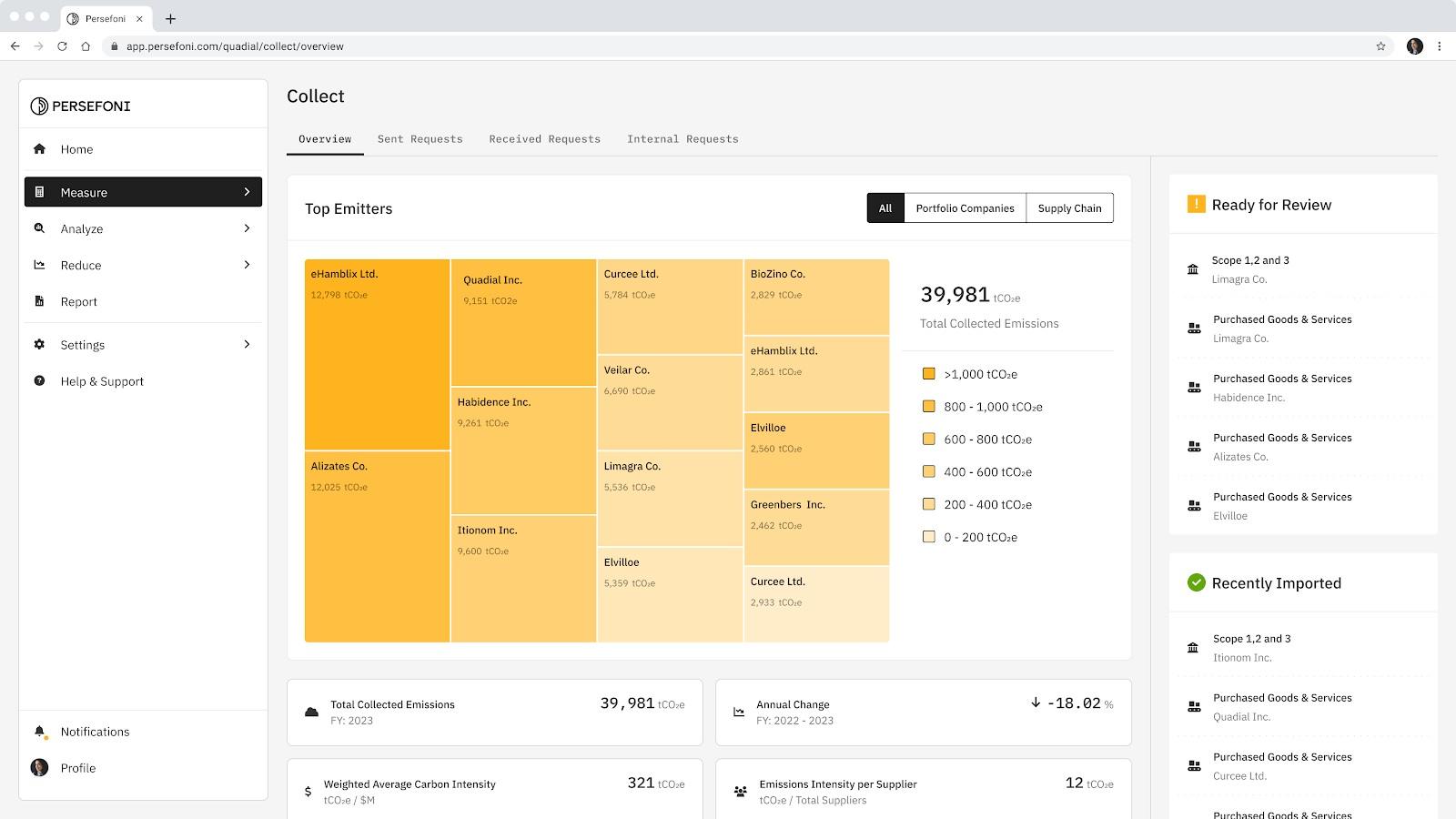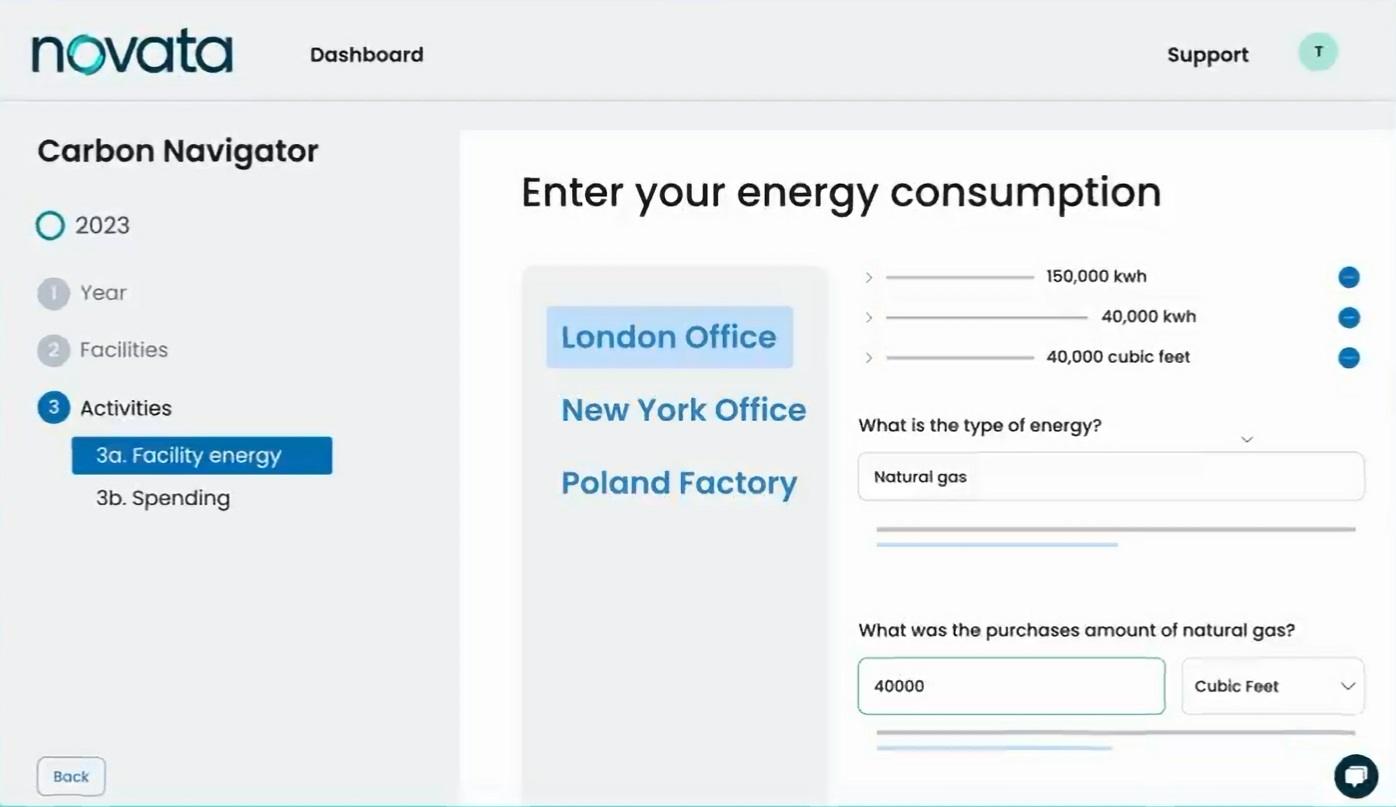Persefoni Launches Tool Enabling Companies to Collect Scope 3 Emissions Data from Suppliers
Climate management and accounting platform (CMAP) provider Persefoni announced the launch of its Scope 3 Data Exchange, a new module aimed at helping companies engage with their suppliers to collect accurate Scope 3 emissions data, and information on supplier climate targets.
The new solutions comes as reporting on value chain, or Scope 3 emissions, which typically make up the vast majority of companies’ climate footprint, is coming into focus, particularly as major regulatory reporting regimes – including in Europe, the U.S. as well as global standards – will require supply chain emissions disclosure within the next few years. The IFRS Foundation, for example, recently announced that its new climate and sustainability reporting standards, which include Scope 3 reporting, will take effect in 2024.
Despite the growing need to gather and report value chain climate data, however, Persefoni noted that nearly half of companies have yet to report any Scope 3 information, citing a recent CDP study.
In its report, CDP listed a series of challenges holding back Scope 3 reporting, including limited data transparency and traceability across the value chain, low quality and granularity of data, a lack of automated tools for data extraction, limited influence over most Scope 3 categories, and the changing regulatory environment.
In a statement announcing the launch of the new module, Persefoni said:
“The companies that are calculating their scope 3 emissions often rely on sending spreadsheets and surveys to suppliers and manually transferring data. Both of these approaches are slow and prone to error. Because of these challenges, companies often resort to less accurate spend-based calculations for scope 3 emissions.”
According to Persefoni, the new solution aims to enable companies to use actual data from suppliers in order to facilitate better emissions reporting and more accurate climate target tracking by engaging with suppliers at scale.
Key features of the module include auditable data requests to any suppliers, customizable request forms allowing the collection of information including supplier emissions, allocation method and percentage, supplier revenue, and climate targets, and a centralized hub to track and manage all supplier requests.
In a social media post announcing the new product, Persefoni said:
“We want to help companies bridge the data gap with their suppliers. Our new module enables companies to collect actual emissions data from any supplier, whether or not they are Persefoni users. This means companies can move away from spend-based estimates, gain a more complete view of emissions contributions throughout their supply chain, and foster greater collaboration with suppliers to achieve their sustainability goals.”





